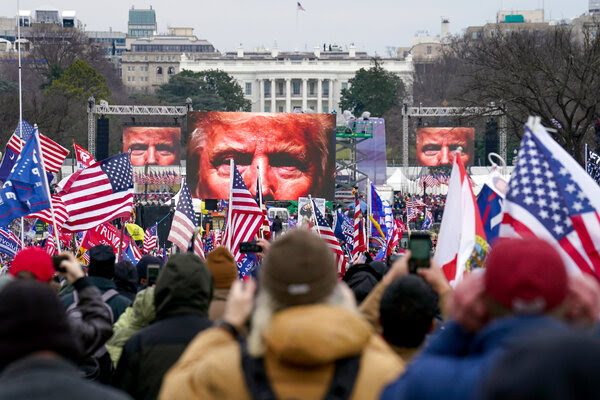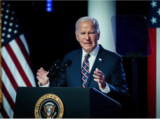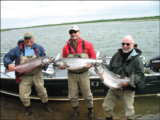By Glynn Wilson –
WASHINGTON, D.C. — The United States Supreme Court avoided the question of whether Trump incited an insurrection on Jan. 6, 2021, but struck down a Colorado Supreme Court ruling saying he was an insurrectionist and could therefore be banned from the Republican primary ballot in that state.
In an unusual move of releasing an opinion on its website on a Monday morning when the court was not scheduled to be in session, the court ruled unanimously that a state did not have the power to ban a major presidential candidate from the ballot.
According to deadline coverage by the New York Times, the decision “was the court’s most important ruling concerning a presidential election since Bush v. Gore handed the presidency to George W. Bush in 2000.”
In the final, decisive paragraph, the court ruled that responsibility for enforcing Section 3 of the 14th Amendment against federal officeholders and candidates rests with Congress and not the States.
“The judgment of the Colorado Supreme Court therefore cannot stand,” the court ruled. “The judgment of the Colorado Supreme Court is reversed.”
The case arose from a challenge brought by six Colorado voters who sought to disqualify Trump from the ballot for the state’s Republican primary based on Section 3 of the 14th Amendment, adopted after the Civil War to forbid those who had taken an oath “to support the Constitution of the United States” from holding office if they then “shall have engaged in insurrection or rebellion against the same, or given aid or comfort to the enemies thereof.”
A Colorado trial judge ruled that Trump had engaged in insurrection but accepted his argument that Section 3 did not apply to the president or to the office of the presidency.
The Colorado Supreme Court affirmed the first part of the ruling — that Trump had engaged in an insurrection. Among his efforts, as detailed in the courts’ opinions: setting out to overturn the result of the 2020 presidential election; trying to alter vote counts; encouraging bogus slates of competing electors; pressuring the vice president to violate the Constitution; and calling for his supporters to march on the Capitol.
But the Colorado Supreme Court’s majority reversed the part of the trial judge’s decision that said Section 3 did not apply to the president or the presidency.
Trump asked the U.S. Supreme Court to intervene, setting out more than half a dozen arguments about why the state court had gone astray and saying his removal would override the will of the voters.
“The court should put a swift and decisive end to these ballot-disqualification efforts, which threaten to disenfranchise tens of millions of Americans and which promise to unleash chaos and bedlam if other state courts and state officials follow Colorado’s lead and exclude the likely Republican presidential nominee from their ballots,” Trump’s brief said.
His primary argument in the U.S. Supreme Court was that the president was not one of the officials covered by Section 3, which does not mention that office by name.
“No person shall be a senator or representative in Congress, or elector of president and vice president, or hold any office, civil or military, under the United States, or under any state, who, having previously taken an oath, as a member of Congress, or as an officer of the United States, or as a member of any state legislature, or as an executive or judicial officer of any state, to support the Constitution of the United States, shall have engaged in insurrection or rebellion against the same, or given aid or comfort to the enemies thereof,” the amendment reads.
“But Congress may, by a vote of two-thirds of each House, remove such disability.”
It is true that neither the president nor the presidency is mentioned in so many words. But the Colorado Supreme Court said that was of no moment given the catchall phrases in the provision (“an officer of the United States” and “any office, civil or military”).
“President Trump asks us to hold,” the majority wrote in an unsigned opinion, “that Section 3 disqualifies every oath-breaking insurrectionist except the most powerful one and that it bars oath breakers from virtually every office, both state and federal, except the highest one in the land. Both results are inconsistent with the plain language and history of Section 3.”
The State Supreme Court addressed several other issues. Congress does not need to act before courts may disqualify candidates, it said. Trump’s eligibility is not the sort of political question that is outside the competence of courts. The House’s Jan. 6 report was properly admitted into evidence. Trump’s speech that day was not protected by the First Amendment.
The case, Trump v. Anderson, No. 23-719, is not the only one concerning Mr. Trump on the Supreme Court’s docket. The justices said last week they would decide whether he was immune from prosecution for his role in the Jan. 6 attack on the Capitol, delaying trial proceedings in his criminal case as they consider the matter. And the justices already agreed to decide on the scope of a central charge in the federal election-interference case against Trump, with a ruling by June.














